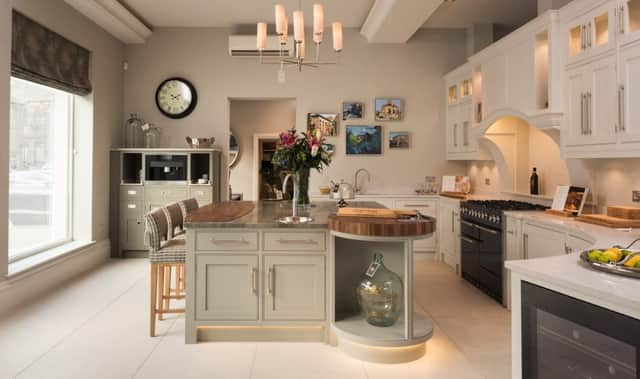The kitchen is a barometer for our ever-changing life The kitchen is a barometer for our ever-changing lifestyles styles


When the unsuccessful Vice Presidential candidate Tim Kaine announced that “Humans don’t like change” he overlooked the fact that it is we humans who introduce, create and pioneer change all the time. In politics, the Ancient Greeks created democracy but the right to vote was limited to a select and restricted group. In the 19th century, democracy in Britain began to include a wider range of voters but still only half of men and no women were eligible to vote. By 1918, all men were enfranchised and astonishingly, the size of the electorate grew from seven to 12 million. Women were included for the first time but only if they were over 30 years old. By 1928 , women’s rights came in line with their male counterparts: both could now vote if 21 or over. This changed again in 1969 when the age threshold was lowered to 18. Even today, albeit with some controversy, convicted serving prisoners are not allowed to vote and there is a movement to lower the age limit further to 16 so the meaning of “universal” suffrage appears to be constantly changing.
In France, it was not until 1945 that laws were changed and women were permitted to vote but then only if they were literate and this was fifteen years after Turkey had committed to universal suffrage. It wasn’t until 1965 that all French women were granted the right to vote.
Advertisement
Hide AdAdvertisement
Hide AdWhilst these changes may well be called “progress,” the new voters certainly fought for and definitely liked the changes. But it’s not just in the realm of electoral reform that change is embraced. In our homes, the kitchen has gone through similar development. Until the early 19th century, the kitchen was not only the “cooking” room, it was often the only room with heating and very much the centre of family life. With industrialisation and urban growth, some homes began to have a dedicated kitchen just for preparing and cooking food, a trend that persisted between the two world wars. Kitchens became smaller and, ironically, often colder than the rest of the house as ovens were installed instead of fires and ranges and there was no other source of heating.
Today the kitchen has again become the focal point of our homes and increasingly it is being integrated into our living space without being tucked away in a separate room. Kitchens have become the most expensive room to fit out. Not only are they full of cupboards, drawers and units, the range of appliances is growing all the time. In addition to our hobs and ovens, we now can have grills, griddles and wok burners, deep fat fryers, steamers, fridges, freezers, washers, dryers and dish washers, espresso makers, mixers, blenders, spiralizers, kettles, toasters, microwaves and more. Kitchens can now include breakfast bars and stools, tables and chairs, televisions and computer screens and once again they have become the centre of home life.
At the same time, however, more people are eating out. One in four of us eat out at least once a week and 16-20 year olds eat fast food take aways between four and five times each week and a staggering one in six do so twice a day. Following this year’s referendum, fast food sales have increased by a staggering 31 per cent.The most popular meals are pizzas, Chinese food and burgers but the variety of food on offer is escalating all the time and total sales now exceed £28 billion per annum. If this trend continues there may be little incentive for homes to have kitchens at all or if they do, most of the appliances will rarely be used. So, we humans are pioneers and champions of change all the time. Whether or not we like it is a different question. But one thing’s for sure, if we don’t like it, we’ll get on and change it again.